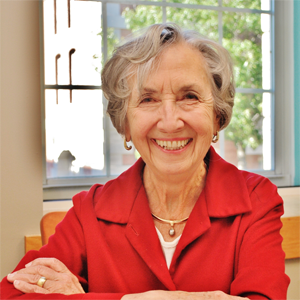 Professor Emerita, MGH Institute of Health Professions
Professor Emerita, MGH Institute of Health Professions
Senior Research Professor, MGH Nursing Research Center
Dr. Purtilo is Professor Emerita in Interprofessional Studies at the Massachusetts General Hospital Institute of Health Professions where she has served in several capacities, the most recent being four years as the Director of the Ethics Initiative. In 2007-2008 she spent one year as a Donoghue Endowed Visiting Professor at the Institution for Social and Policy Studies, Interdisciplinary Center for Bioethics at Yale University. She is a Senior Research Fellow, Institute for Patient Care, Yvonne L Munn Center for Nursing Research, Massachusetts General Hospital. Dr. Purtilo holds five honorary degrees for her work in ethics. In 1991 she received the Distinguished Alumni Award from Harvard Divinity School. In 1983 she was awarded the Nellie Westerman Prize by the American Federation for Clinical Research for her article predicting major ethical and social issues that the (then) new disease called AIDS would create. She is a Catherine Worthingham Fellow and McMillan Scholar of the American Physical Therapy Association. She has been an awardee of two National Endowment for the Humanities Senior Scholars summer institute awards and was a recipient of two Greenwall Foundation grants to study moral courage among South African professionals during the Apartheid years and for an international initiative on ethical foundations of palliative care in Alzheimer Disease. Dr. Purtilo is the author of six books and more than 100 articles. Among her books are Health Professional-Patient Interaction (6th to 8th eds co-authored with Amy Haddad) and Ethical Dimensions in the Health Professions (5th and 6th eds (in preparation) co-authored with Regina Doherty). She is co editor (with Gail Jensen and Charlotte Royeen) of Educating for Moral Action: A Sourcebook in Health and Rehabilitation Ethics and co-editor (with Henk ten Have) of Ethical Foundations of Palliative Care for Alzheimer Disease. She served as an area editor for the Encyclopedia of Bioethics, rev. ed. Dr. Purtilo’s primary research interests include rehabilitation ethics; interprofessional health care teams; and ethical issues in health care systems reform. In recent years her focus has turned to characteristics that support humane practices such as moral courage and the dynamics of caring relationships.
 Rita Charon is a general internist and literary scholar at Columbia University who originated the field of narrative medicine. She is founder and Executive Director of the Program in Narrative Medicine at Columbia. She completed the MD at Harvard in 1978 and the Ph.D. in English at Columbia in 1999, concentrating on the works of Henry James. Her research focuses on the consequences of narrative medicine practice, reflective clinical practice, and health care team effectiveness. At Columbia, she is Professor of Medicine at Columbia University Medical Center, Director of the Narrative and Social Medicine Scholarly Concentration Track, Director of Faculty Development for the Division of General Medicine, and Director of the Columbia/Macy Interprofessional Education Project. She has served as Visiting Professor at many medical schools and universities in the US and abroad, teaching narrative medicine theory and practice. She has received a Rockefeller Foundation Bellagio residency, a Guggenheim Fellowship, and research funding from the NIH, the NEH, the VA, the Josiah Macyk Jr. Foundation, and several additional private foundations. She served as Co-Editor-in-Chief of Literature and Medicine from 2000 to 2007. She lectures widely on narrative medicine and is published in such journals of medicine and literary studies as The New England Journal of Medicine, Lancet, JAMA, Annals of Internal Medicine, Narrative, Henry James Review, and Literature and Medicine. She is the author of Narrative Medicine: Honoring the Stories of Illness (Oxford University Press, 2006) and co-editor of Stories Matter: The Role of Narrative in Medical Ethics (Routledge, 2002) and Psychoanalysis and Narrative Medicine (SUNY Press, 2008). Principles and Practice of Narrative Medicine, a co-authored textbook of Narrative Medicine, is in preparation for Oxford University Press.
Rita Charon is a general internist and literary scholar at Columbia University who originated the field of narrative medicine. She is founder and Executive Director of the Program in Narrative Medicine at Columbia. She completed the MD at Harvard in 1978 and the Ph.D. in English at Columbia in 1999, concentrating on the works of Henry James. Her research focuses on the consequences of narrative medicine practice, reflective clinical practice, and health care team effectiveness. At Columbia, she is Professor of Medicine at Columbia University Medical Center, Director of the Narrative and Social Medicine Scholarly Concentration Track, Director of Faculty Development for the Division of General Medicine, and Director of the Columbia/Macy Interprofessional Education Project. She has served as Visiting Professor at many medical schools and universities in the US and abroad, teaching narrative medicine theory and practice. She has received a Rockefeller Foundation Bellagio residency, a Guggenheim Fellowship, and research funding from the NIH, the NEH, the VA, the Josiah Macyk Jr. Foundation, and several additional private foundations. She served as Co-Editor-in-Chief of Literature and Medicine from 2000 to 2007. She lectures widely on narrative medicine and is published in such journals of medicine and literary studies as The New England Journal of Medicine, Lancet, JAMA, Annals of Internal Medicine, Narrative, Henry James Review, and Literature and Medicine. She is the author of Narrative Medicine: Honoring the Stories of Illness (Oxford University Press, 2006) and co-editor of Stories Matter: The Role of Narrative in Medical Ethics (Routledge, 2002) and Psychoanalysis and Narrative Medicine (SUNY Press, 2008). Principles and Practice of Narrative Medicine, a co-authored textbook of Narrative Medicine, is in preparation for Oxford University Press.
 Natasha Trethewey served two terms as the 19th Poet Laureate of the United States (2012-2014). She is the author of four collections of poetry, Domestic Work (2000), Bellocq’s Ophelia (2002), Native Guard (2006)—for which she was awarded the 2007 Pulitzer Prize—and, most recently, Thrall (2012). Her book of non-fiction, Beyond Katrina: A Meditation on the Mississippi Gulf Coast, appeared in 2010. She is the recipient of fellowships from the Guggenheim Foundation, the National Endowment for the Arts, the Rockefeller Foundation, the Beinecke Library at Yale, and the Radcliffe Institute for Advanced Study at Harvard. A fellow of the American Academy of Arts and Sciences, she is Robert W. Woodruff Professor of English and Creative Writing at Emory University.
Natasha Trethewey served two terms as the 19th Poet Laureate of the United States (2012-2014). She is the author of four collections of poetry, Domestic Work (2000), Bellocq’s Ophelia (2002), Native Guard (2006)—for which she was awarded the 2007 Pulitzer Prize—and, most recently, Thrall (2012). Her book of non-fiction, Beyond Katrina: A Meditation on the Mississippi Gulf Coast, appeared in 2010. She is the recipient of fellowships from the Guggenheim Foundation, the National Endowment for the Arts, the Rockefeller Foundation, the Beinecke Library at Yale, and the Radcliffe Institute for Advanced Study at Harvard. A fellow of the American Academy of Arts and Sciences, she is Robert W. Woodruff Professor of English and Creative Writing at Emory University.
 Historical Perspectives in Art Section Editor: Dr. Siobhan M. Conaty is an Associate Professor of Art History in the Department of Fine Arts and Art History, La Salle University, Philadelphia. Dr. Conaty’s area of research is focused primarily in the modern era, with topics spanning from Art and Medicine, the Irish Renaissance, and gender issues in twentieth century European and American art. Her work has been published in the Woman’s Art Journal and The International Journal of the Humanities, and in a collection of essays entitled American Women Artists: Gender, Culture, and Politics, issued by Ashgate Publishing. Her research has been supported by an NEH Summer Fellowship, the J. Paul Getty Research Institute, and the American Academy in Rome. Dr. Conaty is a member of the Steering Committee on the Section on Medicine and the Arts, at the College of Physicians of Philadelphia. Dr. Conaty has recently been selected as a Keinle Scholar in Medical Humanities from the Penn State School of Medicine.
Historical Perspectives in Art Section Editor: Dr. Siobhan M. Conaty is an Associate Professor of Art History in the Department of Fine Arts and Art History, La Salle University, Philadelphia. Dr. Conaty’s area of research is focused primarily in the modern era, with topics spanning from Art and Medicine, the Irish Renaissance, and gender issues in twentieth century European and American art. Her work has been published in the Woman’s Art Journal and The International Journal of the Humanities, and in a collection of essays entitled American Women Artists: Gender, Culture, and Politics, issued by Ashgate Publishing. Her research has been supported by an NEH Summer Fellowship, the J. Paul Getty Research Institute, and the American Academy in Rome. Dr. Conaty is a member of the Steering Committee on the Section on Medicine and the Arts, at the College of Physicians of Philadelphia. Dr. Conaty has recently been selected as a Keinle Scholar in Medical Humanities from the Penn State School of Medicine.
 Poetry Section Editor: Since receiving her PhD in comparative literature from Princeton, Marilyn McEntyre has taught many classes that connect humanities and sciences. She has developed courses in literature and medicine that equip premed students with a repertoire of questions about how medical practice is informed by cultural values and myths and is shaped by narrative and poetic devices. She is Adjunct Professor of Medical Humanities at the UCB-UCSF Joint Medical Program. She also offers occasional CME workshops for medical professionals and volunteers with Hospice. Her recent book Patient Poets: Illness from Inside Out (UC Medical Humanities Press) reflects on how and why people with chronic or terminal illness write poetry and what caregivers can learn from their poems.
Poetry Section Editor: Since receiving her PhD in comparative literature from Princeton, Marilyn McEntyre has taught many classes that connect humanities and sciences. She has developed courses in literature and medicine that equip premed students with a repertoire of questions about how medical practice is informed by cultural values and myths and is shaped by narrative and poetic devices. She is Adjunct Professor of Medical Humanities at the UCB-UCSF Joint Medical Program. She also offers occasional CME workshops for medical professionals and volunteers with Hospice. Her recent book Patient Poets: Illness from Inside Out (UC Medical Humanities Press) reflects on how and why people with chronic or terminal illness write poetry and what caregivers can learn from their poems.
 Critical Research and Perspectives Section Co-Editor: Barbara Gibson, BMR(PT), MSc, PhD, is a physical therapist and bioethicist whose work investigates how disability is understood and addressed in rehabilitation practice and delivery. Her research examines the intersections of social, cultural, and institutional practices in producing health, inclusion/exclusion, and identity with disabled children and young people. Dr Gibson has examined key areas of health practices and policies including transitions to adulthood, independent living, and understanding relationships between mobility, identity, and social inclusion. Dr. Gibson is an Associate Professor at the University of Toronto where she also holds the Bloorview Children’s Hospital Foundation Chair in Childhood Disability Studies with the Bloorview Research Institute in Canada. She has led three books aimed at transforming rehabilitation practices, Rethinking Rehabilitation Theory and Practice (2015, co-editor), Rehabilitation: A Post-critical Approach (2016) and Manipulating Practices: A Critical Physiotherapy Reader (2018, lead editor). She is a co-founder of the international Critical Physiotherapy Network.
Critical Research and Perspectives Section Co-Editor: Barbara Gibson, BMR(PT), MSc, PhD, is a physical therapist and bioethicist whose work investigates how disability is understood and addressed in rehabilitation practice and delivery. Her research examines the intersections of social, cultural, and institutional practices in producing health, inclusion/exclusion, and identity with disabled children and young people. Dr Gibson has examined key areas of health practices and policies including transitions to adulthood, independent living, and understanding relationships between mobility, identity, and social inclusion. Dr. Gibson is an Associate Professor at the University of Toronto where she also holds the Bloorview Children’s Hospital Foundation Chair in Childhood Disability Studies with the Bloorview Research Institute in Canada. She has led three books aimed at transforming rehabilitation practices, Rethinking Rehabilitation Theory and Practice (2015, co-editor), Rehabilitation: A Post-critical Approach (2016) and Manipulating Practices: A Critical Physiotherapy Reader (2018, lead editor). She is a co-founder of the international Critical Physiotherapy Network.
 Critical Research and Perspectives Section Co-Editor: Jenny Setchell, PhD, BScPT, Grad Cert (Clin PT), is a Research Fellow in international conjoint positions at the School of Health and Rehabilitation Sciences, The University of Queensland (Australia); and the Bloorview Research Institute, Holland Bloorview Hospital, University of Toronto (Canada). Her research interests include critical perspectives on rehabilitation, and on physiotherapy specifically. She is particularly interested in post-modern and new-materialist theories. Dr. Setchell has been awarded 10+ fellowships and awards for her work and has presented and published extensively across disciplines. She has 20 years of diverse clinical physiotherapy experience in Australia and internationally, primarily in the musculoskeletal and sports sub-disciplines. Dr. Setchell is co-founder and co-chair of the executive committee of the Critical Physiotherapy Network, an international network of more than 600 physiotherapists across 30+ countries working toward more critical, sociopolitical understandings of rehabilitation. She co-edited the first collection of critical physiotherapy work in book form, Manipulating Practices: A Critical Physiotherapy Reader. Dr. Setchell has also been an acrobat and a human rights worker.
Critical Research and Perspectives Section Co-Editor: Jenny Setchell, PhD, BScPT, Grad Cert (Clin PT), is a Research Fellow in international conjoint positions at the School of Health and Rehabilitation Sciences, The University of Queensland (Australia); and the Bloorview Research Institute, Holland Bloorview Hospital, University of Toronto (Canada). Her research interests include critical perspectives on rehabilitation, and on physiotherapy specifically. She is particularly interested in post-modern and new-materialist theories. Dr. Setchell has been awarded 10+ fellowships and awards for her work and has presented and published extensively across disciplines. She has 20 years of diverse clinical physiotherapy experience in Australia and internationally, primarily in the musculoskeletal and sports sub-disciplines. Dr. Setchell is co-founder and co-chair of the executive committee of the Critical Physiotherapy Network, an international network of more than 600 physiotherapists across 30+ countries working toward more critical, sociopolitical understandings of rehabilitation. She co-edited the first collection of critical physiotherapy work in book form, Manipulating Practices: A Critical Physiotherapy Reader. Dr. Setchell has also been an acrobat and a human rights worker.
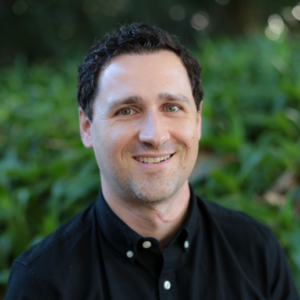 Critical Research and Perspectives Section Co-Editor: Tim Barlott, PhD, MSc, Grad Cert (Community-Based Participatory Research) BScOT, is an Assistant Professor in the Department of Occupational Therapy at the University of Alberta and Co-Director of the SocioHealthLab at The University of Queensland (UQ), Australia. Tim’s research is at the interface of health service delivery and the sociology of health, interrogating the socio-political aspects of everyday life and pursuing affirmative/transformative possibilities. In particular, Tim is interested in allyship and the value of freely-given relationships in community mental health, considered through post-modern and new materialist theoretical perspectives. Using community-based approaches, Tim’s research is built on collaborative relationships with community partners and the co-construction of research processes. Tim’s research is published across sociology, rehabilitation, occupational science, occupational therapy, philosophy, and qualitative methods. Tim has over 15 years of experience as a community practitioner (occupational therapist, addictions counsellor, and youth worker), educator, and participatory researcher in Canada, Australia, and internationally.
Critical Research and Perspectives Section Co-Editor: Tim Barlott, PhD, MSc, Grad Cert (Community-Based Participatory Research) BScOT, is an Assistant Professor in the Department of Occupational Therapy at the University of Alberta and Co-Director of the SocioHealthLab at The University of Queensland (UQ), Australia. Tim’s research is at the interface of health service delivery and the sociology of health, interrogating the socio-political aspects of everyday life and pursuing affirmative/transformative possibilities. In particular, Tim is interested in allyship and the value of freely-given relationships in community mental health, considered through post-modern and new materialist theoretical perspectives. Using community-based approaches, Tim’s research is built on collaborative relationships with community partners and the co-construction of research processes. Tim’s research is published across sociology, rehabilitation, occupational science, occupational therapy, philosophy, and qualitative methods. Tim has over 15 years of experience as a community practitioner (occupational therapist, addictions counsellor, and youth worker), educator, and participatory researcher in Canada, Australia, and internationally.
 Therese (Tess) Jones is Associate Director of the Center for Bioethics and Humanities and Director of the Arts and Humanities in Healthcare Program at the University of Colorado Anschutz Medical Campus. She is an Associate Professor in the Department of Medicine. Jones is the editor of the Journal of Medical Humanities and lead editor for the Health Humanities Reader, Rutgers University Press (2014), the first major text in the field of health humanities. She teaches health humanities and disability studies in the Schools of Medicine and Pharmacy and the Physical Therapy and Physician Assistants Programs and developed the undergraduate Health Humanities Minor for the University of Colorado Denver. Dr. Jones is a co-chair and founding steering committee member of the Health Humanities Consortium and recipient of the University of Colorado Thomas Jefferson Award for “being an international trailblazer for the discipline of health humanities.”
Therese (Tess) Jones is Associate Director of the Center for Bioethics and Humanities and Director of the Arts and Humanities in Healthcare Program at the University of Colorado Anschutz Medical Campus. She is an Associate Professor in the Department of Medicine. Jones is the editor of the Journal of Medical Humanities and lead editor for the Health Humanities Reader, Rutgers University Press (2014), the first major text in the field of health humanities. She teaches health humanities and disability studies in the Schools of Medicine and Pharmacy and the Physical Therapy and Physician Assistants Programs and developed the undergraduate Health Humanities Minor for the University of Colorado Denver. Dr. Jones is a co-chair and founding steering committee member of the Health Humanities Consortium and recipient of the University of Colorado Thomas Jefferson Award for “being an international trailblazer for the discipline of health humanities.”
 Deborah Bowman is Professor of Bioethics & Clinical Ethics and Deputy Principal (Institutional Affairs) at St. George’s, University of London. Her background and qualifications are in philosophy, law and education. Professor Bowman’s academic interests concern emotion in ethical decision-making, moral distress, public involvement in ethical debate, theatre and medicine, and therapeutic relationships. Prof. Bowman has published extensively in a wide range of titles and she has participated in many international projects in the fields of the health humanities and healthcare ethics.
Deborah Bowman is Professor of Bioethics & Clinical Ethics and Deputy Principal (Institutional Affairs) at St. George’s, University of London. Her background and qualifications are in philosophy, law and education. Professor Bowman’s academic interests concern emotion in ethical decision-making, moral distress, public involvement in ethical debate, theatre and medicine, and therapeutic relationships. Prof. Bowman has published extensively in a wide range of titles and she has participated in many international projects in the fields of the health humanities and healthcare ethics.
Prof. Bowman has a commitment to public engagement and has spoken at many ideas, science and literary festivals and worked with a large number of arts organisations and charities. She is an external member of the Wellcome Trust’s Public Engagement Committee and a former member of its Large Arts Awards Committee. She is a broadcaster and regular commentator in the media, particularly for BBC radio; she is currently working on a second series for Radio 4 of Test Case and with Love Productions on a programme exploring clinical ethics support in the UK for broadcast on channel 4 in Autumn 2017. The arts are a particular interest of Professor Bowman’s. Most recently, Deborah has worked with The Donmar Warehouse on its production of Nick Payne’s ‘Elegy’. Previously, she has advised on, and supported, productions at The Southwark Playhouse (TomCat), Theatre 503 (Valhalla and The State We’re In) and The Arcola Theatre (Professor Bernhardi).
She is a former Editor-in-Chief of the BMJ journal Medical Humanities and an Editorial Board member of the health humanities title Vital. Prof Bowman is the Chair of The Deafinitely Theatre Company and a member of the London Police Ethics Panel. In 2016, she was awarded an MBE for Services to Medical Ethics.
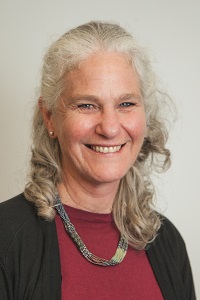 Professor Leigh Hale is the incoming Dean of the School of Physiotherapy / Centre for Health, Activity, and Rehabilitation Research at the University of Otago, New Zealand and the Editor of the New Zealand Journal of Physiotherapy. She graduated as a physiotherapist from the University of Cape Town (South Africa) and went on to attain her MSc (Neurorehabilitation) and PhD from the University of the Witwatersrand (Wits; South Africa). Professor Hale worked as clinical physiotherapist in all areas of physiotherapy before pursuing an academic career. After teaching neurorehabilitation at the Department of Physiotherapy at Wits for ten years, she moved to the University of Otago in 2000. Professor Hale primarily researches in the area of community-based physiotherapeutic rehabilitation for people living with disability and with neurological conditions, such as stroke, multiple sclerosis, and Parkinson’s disease. Her research uses both quantitative and qualitative methodologies and focusses on how physiotherapists can enable people to optimally live healthy and engaging lives. Of importance is ensuring that physiotherapy interventions are delivered in a cost-effective, acceptable and culturally-safe manner so that they are accessible for all. Professor Hale is very excited about the Journal of Humanities in Rehabilitation as she considers it to be an innovative and appealing way of disseminating rehabilitation research findings that does not fall within the mainstream quantitative paradigm.
Professor Leigh Hale is the incoming Dean of the School of Physiotherapy / Centre for Health, Activity, and Rehabilitation Research at the University of Otago, New Zealand and the Editor of the New Zealand Journal of Physiotherapy. She graduated as a physiotherapist from the University of Cape Town (South Africa) and went on to attain her MSc (Neurorehabilitation) and PhD from the University of the Witwatersrand (Wits; South Africa). Professor Hale worked as clinical physiotherapist in all areas of physiotherapy before pursuing an academic career. After teaching neurorehabilitation at the Department of Physiotherapy at Wits for ten years, she moved to the University of Otago in 2000. Professor Hale primarily researches in the area of community-based physiotherapeutic rehabilitation for people living with disability and with neurological conditions, such as stroke, multiple sclerosis, and Parkinson’s disease. Her research uses both quantitative and qualitative methodologies and focusses on how physiotherapists can enable people to optimally live healthy and engaging lives. Of importance is ensuring that physiotherapy interventions are delivered in a cost-effective, acceptable and culturally-safe manner so that they are accessible for all. Professor Hale is very excited about the Journal of Humanities in Rehabilitation as she considers it to be an innovative and appealing way of disseminating rehabilitation research findings that does not fall within the mainstream quantitative paradigm.
 Rebecca L Craik, PT, PhD, FAPTA, is currently the Dean of the College of Health Sciences at Arcadia University having served previously as the Chair of the Department of Physical Therapy. Dr. Craik received her undergraduate training in Biology at Case Western Reserve University, physical therapy training at Duke University, and doctoral training in physiology at the School of Medicine, Temple University. A theme that threads through her research is adaptability whether she is working with the older adult or examining animal models of human disease. She is co-principal investigator for a multi-site randomized control trial designed to compare outcomes of two interventions designed to enhance mobility in the older adult after hip fracture. Dr. Craik was the Editor-in-Chief for Physical Therapy and Congress Editor for the Archives of Physical Medicine and Rehabilitation. She was a member of the Board of Trustees for the Foundation for Physical Therapy and is currently serving as a mentor for the APTA Education Leadership Institute. Becky has been active at the National Institutes of Health serving as Chair of the National Advisory Board on Medical Rehabilitation Research and as a member of the National Advisory Child Health and Human Development Council, National Institute of Child and Human Development.
Rebecca L Craik, PT, PhD, FAPTA, is currently the Dean of the College of Health Sciences at Arcadia University having served previously as the Chair of the Department of Physical Therapy. Dr. Craik received her undergraduate training in Biology at Case Western Reserve University, physical therapy training at Duke University, and doctoral training in physiology at the School of Medicine, Temple University. A theme that threads through her research is adaptability whether she is working with the older adult or examining animal models of human disease. She is co-principal investigator for a multi-site randomized control trial designed to compare outcomes of two interventions designed to enhance mobility in the older adult after hip fracture. Dr. Craik was the Editor-in-Chief for Physical Therapy and Congress Editor for the Archives of Physical Medicine and Rehabilitation. She was a member of the Board of Trustees for the Foundation for Physical Therapy and is currently serving as a mentor for the APTA Education Leadership Institute. Becky has been active at the National Institutes of Health serving as Chair of the National Advisory Board on Medical Rehabilitation Research and as a member of the National Advisory Child Health and Human Development Council, National Institute of Child and Human Development.
 Jan Reynolds is director of scientific communications at the American Physical Therapy Association and is managing editor of Physical Therapy (PTJ). In the early 1990s, she served as managing editor of APTA’s clinical practice magazine and helped merge that publication with the association’s tabloid to create PT—Magazine of Physical Therapy (now PT in Motion). She won a 1994 Clarion Award for Women in Communications for a magazine feature article about an innercity home health physical therapist. In 1996, she became managing editor of PTJ, working with the late Editor in Chief Jules Rothstein to improve the journal’s peer review system. In the 2000s, she oversaw the migration of PTJ‘s website to the HighWire Press platform, developed podcast features and other online-only content, and most recently has overseen migration of PTJ content to the Oxford University Press platform.
Jan Reynolds is director of scientific communications at the American Physical Therapy Association and is managing editor of Physical Therapy (PTJ). In the early 1990s, she served as managing editor of APTA’s clinical practice magazine and helped merge that publication with the association’s tabloid to create PT—Magazine of Physical Therapy (now PT in Motion). She won a 1994 Clarion Award for Women in Communications for a magazine feature article about an innercity home health physical therapist. In 1996, she became managing editor of PTJ, working with the late Editor in Chief Jules Rothstein to improve the journal’s peer review system. In the 2000s, she oversaw the migration of PTJ‘s website to the HighWire Press platform, developed podcast features and other online-only content, and most recently has overseen migration of PTJ content to the Oxford University Press platform.
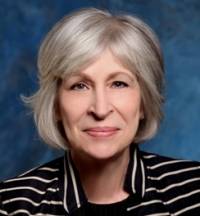 Dr. Amy Marie Haddad is the Director for the Center for Health Policy & Ethics and the Dr. C.C. and Mabel L. Criss Endowed Chair in the Health Sciences. She received her BSN from Creighton University in 1975, her MSN from the University of Nebraska Medical Center in 1979, and her PhD in education from the University of Nebraska-Lincoln in 1988. She first became involved in education in the health sciences at the College of Saint Mary in the nursing program, then moved on to Creighton in 1984 where she has since taught ethics in the health sciences and led the effort to establish the Master of Science in Health Care Ethics program in 2009.
Dr. Amy Marie Haddad is the Director for the Center for Health Policy & Ethics and the Dr. C.C. and Mabel L. Criss Endowed Chair in the Health Sciences. She received her BSN from Creighton University in 1975, her MSN from the University of Nebraska Medical Center in 1979, and her PhD in education from the University of Nebraska-Lincoln in 1988. She first became involved in education in the health sciences at the College of Saint Mary in the nursing program, then moved on to Creighton in 1984 where she has since taught ethics in the health sciences and led the effort to establish the Master of Science in Health Care Ethics program in 2009.
She was selected for the national Carnegie Scholars program of the Carnegie Center for the Advancement of the Scholarship of Teaching in 2001. As part of her Carnegie project, Dr. Haddad evaluated various methods of teaching applied ethics including the use of standardized patients. Teaching and learning in ethics education whether in a face-to-face environment or online continues to be the primary focus of her research.
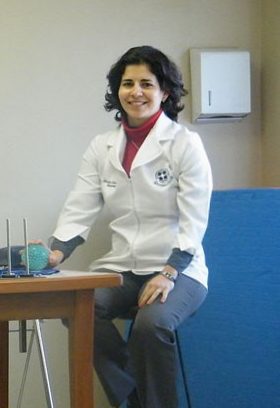 Dr. Doussoulin is physiotherapist and received her Master Science of Human Movement and PhD in Human Movement. She has been a teacher in the Medicine Faculty at Universidad de La Frontera-Chile for twenty years. Professor Doussoulin works as clinical physiotherapist in neurorehabilitation at the Rehabilitation Center in Universidad de La Frontera for ten years. She has conducted research or projects like DIUFRO or FONIS-Chile, and authored or coauthored publications in Spanish and English. She is author of Manual about Constraint induced therapy in Spanish. Dr. Doussoulin has been invited presentations at regional, national, and international conferences. She currently serves as the Editor of the Journal of Physical Therapy in Chile and she is member of Nucleo of Neurorehabilitation at the South of Chile. Her research focuses on evaluation and intervention in neurorehabilitation, like Motor Activiy Log-30 and Actions Research Arm and constraint induced therapy movement.
Dr. Doussoulin is physiotherapist and received her Master Science of Human Movement and PhD in Human Movement. She has been a teacher in the Medicine Faculty at Universidad de La Frontera-Chile for twenty years. Professor Doussoulin works as clinical physiotherapist in neurorehabilitation at the Rehabilitation Center in Universidad de La Frontera for ten years. She has conducted research or projects like DIUFRO or FONIS-Chile, and authored or coauthored publications in Spanish and English. She is author of Manual about Constraint induced therapy in Spanish. Dr. Doussoulin has been invited presentations at regional, national, and international conferences. She currently serves as the Editor of the Journal of Physical Therapy in Chile and she is member of Nucleo of Neurorehabilitation at the South of Chile. Her research focuses on evaluation and intervention in neurorehabilitation, like Motor Activiy Log-30 and Actions Research Arm and constraint induced therapy movement.
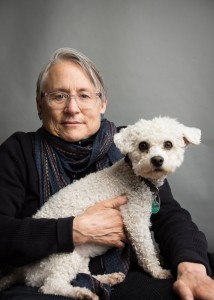 Christina Crosby is an American scholar and writer. She has worked at Wesleyan University since 1982, where she is Professor of English and Feminist, Gender, and Sexuality Studies. Her subfields are Victorian studies and Feminist Studies. She has published The Ends of History: Victorians and the ‘Woman Question’ and essays and reviews in Victorian Studies, PMLA, College English, and elsewhere. Dr. Crosby is most recently the author of A Body, Undone: Living on after Great Pain (NYU Press, March 2016), a memoir exploring what it took to create a truly livable life in the wake of a spinal cord injury that dispossessed her of her body.
Christina Crosby is an American scholar and writer. She has worked at Wesleyan University since 1982, where she is Professor of English and Feminist, Gender, and Sexuality Studies. Her subfields are Victorian studies and Feminist Studies. She has published The Ends of History: Victorians and the ‘Woman Question’ and essays and reviews in Victorian Studies, PMLA, College English, and elsewhere. Dr. Crosby is most recently the author of A Body, Undone: Living on after Great Pain (NYU Press, March 2016), a memoir exploring what it took to create a truly livable life in the wake of a spinal cord injury that dispossessed her of her body.
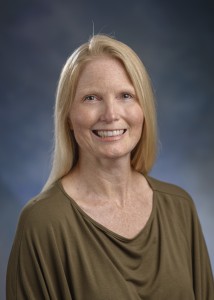
Associate Professor of Communication Sciences & Disorders, Georgia State University Dr. Laures-Gore graduated from Iowa State University with a Bachelor’s of Science in Speech Communication followed by a Master’s of Health Science in Communication Disorders at the University of Missouri-Columbia. She practiced as a full-time speech-language pathologist in rehabilitation environments for five years before pursuing doctoral training. She received her PhD in Communicative Disorders from the University of Wisconsin-Madison in 2001. She joined the faculty at Georgia State University after obtaining her PhD and is currently an Associate Professor. Dr. Laures-Gore is also the Director of the Aphasia and Motor Speech Disorders Research Lab at Georgia State University. She has numerous publications and presentations in the area of adult neurogenic communication disorders and has been the primary investigator of multiple grants.
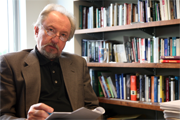 John Banja is a Professor in the Department of Rehabilitation Medicine and a medical ethicist at the Center for Ethics at Emory University. He also directs the Section on Ethics for the Atlanta Clinical and Translational Science Institute at Emory. Dr. Banja received a doctorate degree in philosophy from Fordham University in New York and has taught and lectured on topics in medical ethics throughout the United States. He has authored or coauthored over 175 publications and has delivered over 800 invited presentations at regional, national, and international conferences. He currently serves as the Editor of the American Journal of Bioethics-Neuroscience, the leading scholarly journal in the field of neuroethics. Dr. Banja has conducted research or educational projects with numerous federal and private organizations including the NIH, the American College of Surgeons, The Agency for Health Care Research and Quality, The National Institute for Disability and Rehabilitation Research, the American Society for Healthcare Risk Management, and the Georgia Hospital Association. He is a former board member of the Commission for Case Manager Certification as well as the American Society of Cataract and Refractive Surgery. His research interests include topics in neuroethics and ethical dilemmas occurring in clinical and translational research. His most recent book, Medical Errors and Medical Narcissism, was published by Jones and Bartlett Publishers in 2005.
John Banja is a Professor in the Department of Rehabilitation Medicine and a medical ethicist at the Center for Ethics at Emory University. He also directs the Section on Ethics for the Atlanta Clinical and Translational Science Institute at Emory. Dr. Banja received a doctorate degree in philosophy from Fordham University in New York and has taught and lectured on topics in medical ethics throughout the United States. He has authored or coauthored over 175 publications and has delivered over 800 invited presentations at regional, national, and international conferences. He currently serves as the Editor of the American Journal of Bioethics-Neuroscience, the leading scholarly journal in the field of neuroethics. Dr. Banja has conducted research or educational projects with numerous federal and private organizations including the NIH, the American College of Surgeons, The Agency for Health Care Research and Quality, The National Institute for Disability and Rehabilitation Research, the American Society for Healthcare Risk Management, and the Georgia Hospital Association. He is a former board member of the Commission for Case Manager Certification as well as the American Society of Cataract and Refractive Surgery. His research interests include topics in neuroethics and ethical dilemmas occurring in clinical and translational research. His most recent book, Medical Errors and Medical Narcissism, was published by Jones and Bartlett Publishers in 2005.
 Dr. Smith is the Andrew W. Mellon Faculty Fellow for Nursing and the Humanities and works with the School of Nursing, the Centre for Ethics, the Centre for Human Health and the College of Arts and Sciences to build collaborations between nursing and the liberal arts. She was awarded a Bachelor of Arts (Honors) in English and History and a PhD in History from the University of Wollongong in Australia. Before coming to Emory, Kylie worked in the School of Nursing at the University of Wollongong where she researched mental health nursing history and taught reflective practice. Kylie has also worked in multicultural HIV/AIDS health promotion in Sydney, Australia and studied scriptwriting at the Australian Film Television and Radio School. Kylie’s current research explores the development of psychiatric nursing history in the US, UK and Australia during and after World War II. This research has been facilitated by a fellowship at the University of Pennsylvania and grants from the Rockefeller Foundation and the American Association for the History of Nursing.
Dr. Smith is the Andrew W. Mellon Faculty Fellow for Nursing and the Humanities and works with the School of Nursing, the Centre for Ethics, the Centre for Human Health and the College of Arts and Sciences to build collaborations between nursing and the liberal arts. She was awarded a Bachelor of Arts (Honors) in English and History and a PhD in History from the University of Wollongong in Australia. Before coming to Emory, Kylie worked in the School of Nursing at the University of Wollongong where she researched mental health nursing history and taught reflective practice. Kylie has also worked in multicultural HIV/AIDS health promotion in Sydney, Australia and studied scriptwriting at the Australian Film Television and Radio School. Kylie’s current research explores the development of psychiatric nursing history in the US, UK and Australia during and after World War II. This research has been facilitated by a fellowship at the University of Pennsylvania and grants from the Rockefeller Foundation and the American Association for the History of Nursing.
 Laura Otis, PhD is a Professor in the Department of English at Emory University. She began her career as a scientist, earning her B.S. in Molecular Biophysics and Biochemistry from Yale in 1983 and her M.A. in Neuroscience from the University of California at San Francisco in 1988. Before receiving her Ph.D. in Comparative Literature from Cornell University in 1991, she worked in labs for eight years. Since 1986, she has been studying and teaching about the ways that scientific and literary thinking coincide and foster each other’s growth. Otis works with British Victorian, Spanish, German, French, and North and South American literature, especially nineteenth-century novels. She is particularly interested in memory, identity formation, and communication technologies and has been a recent guest scholar at the Max Planck Institute for Human Development in Berlin. In addition to her academic books, Otis has written five yet-to-be-published novels. In 2000, she was awarded a MacArthur fellowship for creativity.
Laura Otis, PhD is a Professor in the Department of English at Emory University. She began her career as a scientist, earning her B.S. in Molecular Biophysics and Biochemistry from Yale in 1983 and her M.A. in Neuroscience from the University of California at San Francisco in 1988. Before receiving her Ph.D. in Comparative Literature from Cornell University in 1991, she worked in labs for eight years. Since 1986, she has been studying and teaching about the ways that scientific and literary thinking coincide and foster each other’s growth. Otis works with British Victorian, Spanish, German, French, and North and South American literature, especially nineteenth-century novels. She is particularly interested in memory, identity formation, and communication technologies and has been a recent guest scholar at the Max Planck Institute for Human Development in Berlin. In addition to her academic books, Otis has written five yet-to-be-published novels. In 2000, she was awarded a MacArthur fellowship for creativity.
 Ms. Fritz received her Master of Arts degree in Art History from Indiana University and Bachelor of Arts in Art and Archaeology from Washington University in St. Louis. She has been a teacher in the Art Department at Hamilton Southeastern High School in Fishers, Indiana for the past ten years, where she teaches upper level drawing and painting as well as Advanced Placement Art History. Prior to her career in secondary education, she worked in the Education Department at the Indianapolis Museum of Art and served as Curator of Collections for the Fort Wayne Museum of Art, Fort Wayne, Indiana.
Ms. Fritz received her Master of Arts degree in Art History from Indiana University and Bachelor of Arts in Art and Archaeology from Washington University in St. Louis. She has been a teacher in the Art Department at Hamilton Southeastern High School in Fishers, Indiana for the past ten years, where she teaches upper level drawing and painting as well as Advanced Placement Art History. Prior to her career in secondary education, she worked in the Education Department at the Indianapolis Museum of Art and served as Curator of Collections for the Fort Wayne Museum of Art, Fort Wayne, Indiana.
 Professor, Ethics and Health Humanities
Professor, Ethics and Health Humanities
Director, Masters Program, Bioethics and Medical Humanities (MABMH)
Morsani College of Medicine
College of Public Health
University of South Florida
Tampa, Florida
Lois LaCivita Nixon has graduate degrees from Rollins College (M.A.T.), Middlebury College/Lincoln College, Oxford (M.Litt.), and the University of South Florida (Ph.D., M.P.H.). Her area of study includes medical ethics and health humanities, women’s issues, aging/end-of-life, and the impact of globalism on health care. Most recently, she co-edited a textbook, Medical Ethics and Humanities (Jones & Bartlett, 2009). In addition she co-edited On Doctoring and Trials, Tribulations, and Celebrations and co-authored Literary Anatomies. Dr. Nixon has published in The Journal of Clinical Ethics, Law, Medicine & Health Care, The Journal of Medical Humanities, Pharos,The Journal of Aging and Identity, and Academic Medicine. Recent articles are entitled “Pyramids and Rhomboids in the Rationalist World of Medicine” and “Emerging Issues in International Health Systems Organization.” For two years, she served as Chair of the Hillsborough County Hospital Authority and served as a member of the Committee on Governance for the American Hospital Association and was active, as well, in the National Association of Public Hospitals. She is a former Peace Corps Volunteer (Togo), a three-time NEH Fellow, a PEW Trust Fellow, and a Fulbright scholar (Jordan).
 Dr. Pullen is an Assistant Professor at Emory University School of Medicine. Her research focuses on developing and implementing physiotherapy protocols and interventions for people living with HIV/AIDS, especially in underserved areas. She has wide experience in the provisions of health services to underserved communities both nationally and abroad. In 2015, she received the IPT-HOPE Award from the World Congress of Physical Therapy for her work in the field of HIV and physiotherapy. Before becoming a PT, Dr. Pullen danced in New York City, Boston and Ecuador. She has worked with the Alvin Ailey Repertory Ensemble (NYC), Rick Vigo dancers (Boston), The Dance Complex (Boston) and Carla Barragan Company (Quito, Ecuador). In addition, she takes DPT students annually to provide workshops on dance injury prevention and wellness at AileyCamp Atlanta.
Dr. Pullen is an Assistant Professor at Emory University School of Medicine. Her research focuses on developing and implementing physiotherapy protocols and interventions for people living with HIV/AIDS, especially in underserved areas. She has wide experience in the provisions of health services to underserved communities both nationally and abroad. In 2015, she received the IPT-HOPE Award from the World Congress of Physical Therapy for her work in the field of HIV and physiotherapy. Before becoming a PT, Dr. Pullen danced in New York City, Boston and Ecuador. She has worked with the Alvin Ailey Repertory Ensemble (NYC), Rick Vigo dancers (Boston), The Dance Complex (Boston) and Carla Barragan Company (Quito, Ecuador). In addition, she takes DPT students annually to provide workshops on dance injury prevention and wellness at AileyCamp Atlanta.
Sue Klappa, PT, PhD
Cindy Dodds, PhD, PT
Sean Halperin, MA
Shilpa Krishnan, PhD, PT
Lisa Kerr Dunn, PhD
Julia Hurtado, PT, DPT, NCS
Robin Fivush, PhD
Gail Teachman, PhD, OT Reg
Annie Robinson, MS
Jess Libow